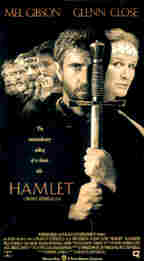The historical background
The Shakespeare's epoch adapt perfectly itself with that period of time that historics usually call Renaissance, age which harmonized old and young in a hierarchical synthesis of universe, which that will introduce like "vision of Elizabethan world", and of Shakespeare. In to speak about studies about great Renaissance we put in evidence that kind of tormented morphology showed landscape, both developing and catastrophic, until Middle age to Modern age; and as the problematic historiography of our century tends to refuse an unitary vision like ideal and mythical supposition so characteristics of Renaissance, which are the background in that Shakespeare writes his works, they are the energy, the pluralism, conflicts, the immanence, the versality, the criticism to systems and the problems of merits of traditional certainties. Machiavelli, like someone says, puts in crisis the political order, Copernicus the cosmological one, Luther theological one and Montaigne the order founded on the supremacy of the man in nature. The medieval unity breaks and its conflagration, which really grows for centuries, it's the Renaissance, a pluridimensional rose of polarized strengths, of tension. To dissolve of that unity produced in thirteenth century vacuums where flow currents of ideas and tumultuous and not homogeneous actions. For example to follow of continual tearings in the Christian Church, which was compared with modern breakings of socialism and Marxsism. Or to overlap of conflicting models of culture, the Catholic and the Counter-Reformation man and that of Luther and Calvino, the Anglican model, "classic" in its variants, and the Christian Humanism. The geographical and astronomical traditional view breaks, the centre of world and universe move over, the harmony between man and nature cracks, the civil war of conscience starts. The century which discovers individual autonomy, the freedom of reason and faith but also the freedom of conscience from ethics to logic, the classic ideal and the tolerance, it's also the century of religious wars, of the Inquisition, of books on the Index, of processes to heretics and witches, characterized by frightening mental chains, by intolerance and by persecution. The classic art has discovered but classic and medieval works have destroyed. In the West the slavery and absolutism born again. In England the Reinassance coincides with religious turnings and with last stage of the training process of unitary national state. With the Henry VI's reform, the absolutism re-estabilishes the organic and sacred hierarchy of Middle Age which now gives off king, temporal and spiritual head, whom order it to his two "nations": on the one hand the aristocracy in crisis and the climbing middle classes which will find in the Puritanism its revolutionary ideology, on the other the majority of proletarians, peasants or uncivils. The war and the violence control life and mind of men in the century which Giovio called of iron, and which historics say characterized by hate and fanaticism like few people in the modern history. War and hunger, crisis of countries, increase of the population, inflation and crisis of state finances: it's the daily Shakespeare's dimension of world, controlled by primary desires of person. With the "Hamlet" man isn't more who he imagined to be time ago. Jacobian man is more intelligent than elizabethan one: he has an hear more ready and soul more opened and willing to accept the conscience.

RETURN